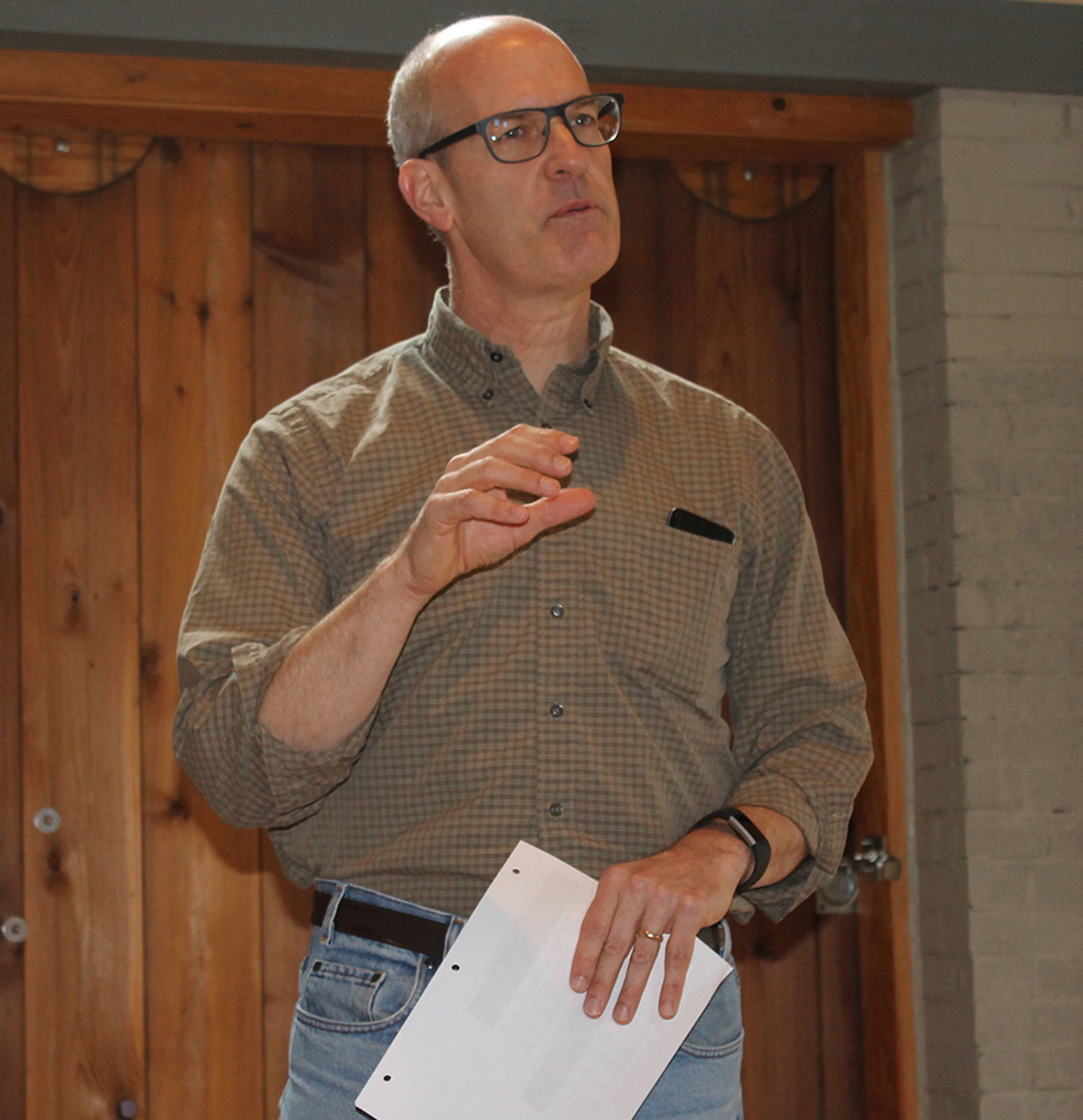Three days after Republicans pulled their Affordable Care Act repeal from a vote, Washington State Rep. Rick Larsen discussed the many “ifs” left.
“About 40,000 in the district I represent would be uninsured,” said Larsen, a Democrat, at a March 23 meeting describing the effects, if the appeal had passed. “Could you imagine that? The summer population of the San Juans would have been uninsured.”
Voting for the repeal, titled the American Health Care Act and also known as Trumpcare, was delayed to garner more Republican support so it will pass. According to Larsen, the bill would give a $600 billion tax cut for “the richest Americans,” whose taxes were raised for the ACA, while preventing many low-income Americans affordable insurance options.
The Affordable Care Act took effect in 2010 to make insurance more affordable. It provides income-based tax credits to purchase plans through state-regulated health care marketplaces and expands eligibility for Medicaid — the federal health care program for low-income citizens. Yet, many insurers have lost money in this plan, as customers who purchase through the marketplace — also called the exchange — are often older and sicker than anticipated, forcing insurers to spend more money to cover them. This raises the cost of plans, which deters the healthier and younger purchasers — the people needed to supplement those cashing in on plans. Republican President Donald Trump attests on Twitter that a system like this is bound to “explode.”
The effect is seen most in rural areas with small populations, and therefore small insurance pools. In 2016, three insurance providers sold plans to San Juan County residents through the state’s exchange, but in 2017, that dropped to one. Amy Wynn of Friday Harbor purchased a Premera Blue Cross plan in 2016 to cover herself and her son, attending a Seattle college, only to find she couldn’t renew. So she bought a plan through the only insurer still on the exchange — Group Health, which was recently purchased by Kaiser Permanente. The plan isn’t offered in King County, so her son was left to find his own.
“It’s difficult for parents to find plans because you can’t buy from two companies,” Wynn told The Journal.
It’s problems like these that Larson asked the roughly 130-person audience to share.
“Look we’re not going to repeal the Affordable Care Act,” said Larsen, about the legislation which passed with an all-Democrat vote. “But if you want to listen to the things we’ve been hearing about the Affordable Care Act, Democrats are more than willing to address those issues.”
Larsen listed the following possible changes to the ACA, but does not officially endorse them:
• Allow purchases of Canadian prescription drugs, which can be cheaper than those sold in the U.S.
• Increase the tax penalty, also known as the individual mandate, for those who do not purchase insurance through the exchange to encourage plan purchases and increase insurance pools.
• Experiment with Medicaid, instead of just expanding eligibility to more low-income Americans.
• Auto-enroll Americans into basic insurance plans, under the assumption most would not take the time to opt out, therefore increasing insurance pools.
• Bundle medical payments, instead of paying each service provider separately, such as the hospital, doctor and anesthesiologist for a surgery. Providers who exceed a pre-arranged reimbursement fee would pay overages. This encourages standardized medical rates.
The number of San Juan County residents who purchase plans through the exchange continues to rise, increasing by almost 1,800 from 2014 to 16.
Larsen shot down suggestions of a single-payer health care system like Democratic Sen. Bernie Sanders suggests. In a single-payer health care system, also known as Medicare for All, citizens pay for health care through federal taxes, and services are contracted through private entities.
“I haven’t supported Medicare For All in the past and I’m not changing my position on that,” said Larsen. “I’m committed to the Affordable Care Act and making that work better than it is now.”
Before the ACA, he explained, 14.8 percent of Washingtonians were uninsured; now, it’s 5.8 percent. Under Trumpcare, reported the Washington State Insurance Commissioner, 15 percent would be uninsured — slightly higher than even before the ACA.
Larsen read a letter he received from an Islander named Kay, who bought insurance through the exchange three years ago and suffered from a “heart condition” last year.
“Without the ACA, ‘healthcare providers would not have been compensated and I would not have received the kind of health care needed,’” he read.
Hospitals often operate in the red after covering costs for those who cannot afford emergency services. Bad debt from PeaceHealth St. Joseph Hospital in Bellingham reduced by about $9 million, from $29 million before the ACA, according to Larsen. (These figures do not reflect Peace Island Medical Center bad debt.)
A few days after the talk, White House officials reported another ACA repeal is in the works. Like the implementation of the ACA, Larsen said any replacement bill would take a few years to be enacted.
Share ACA stories with Larsen at larsen.house.gov/shareyourstory.




